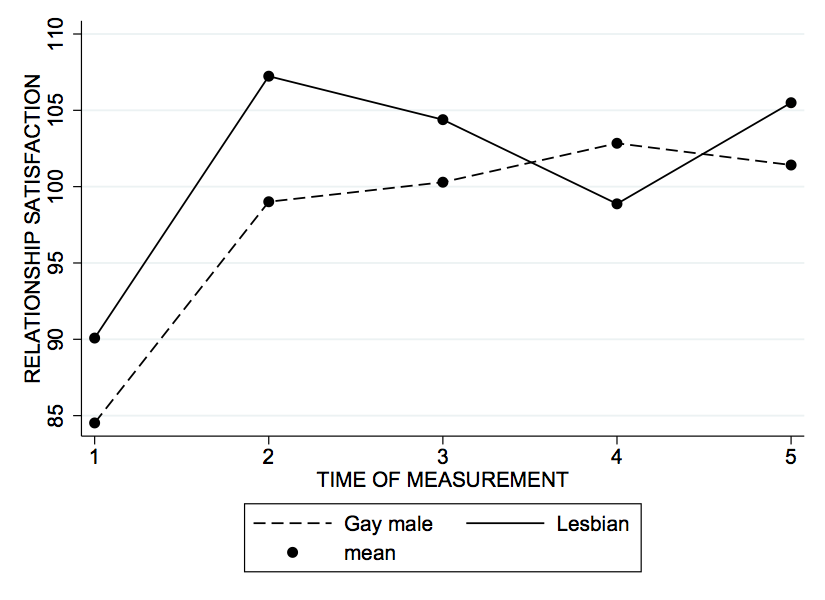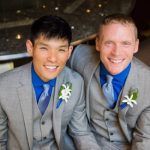
In 2007, Alapaki Yee and I were two years into our relationship. What most people don’t know is that when you’re dating another therapist, you like to surprise each other with continuing education. Romantic, I know. Couples can complete the units together, and sometimes turn a work trip into a short vacation.
For my 30th birthday, we attended The Gottman Institute’s The Art and Science of Love workshop for couples in Seattle. I loved learning about the research findings and the Gottman tools and communication techniques. We enjoyed doing the exercises together.
The only problem in our mind was that we were one of three same-sex couples in a room of three hundred heterosexual couples. So, we wanted to see if there were any differences between outcomes for same-sex and heterosexual couples.
10 years after that first workshop, we are proud to share the exciting results of the first outcome research study on couples therapy with gay and lesbian couples.
Creation of the Gay Couples Institute
After we completed the Gottmans’ workshop, Alapaki and I went back to our hotel to start planning, and after several hours of dreaming and writing, the Gay Couples Institute was created. For our clinical approach, The Gottman Method seemed like a logical choice, so we continued working toward becoming Certified Gottman Therapists. I went on to become a Gottman Trainer, teaching Level 1 and Level 2 Training in Gottman Method Couples Therapy.
In 2008, the Gay Couples Institute served approximately 200 couples. We hired staff to create a group practice that could focus on couples communication techniques, as well as addiction, parenting and families, sex and sexuality, and strategies for gay and lesbian singles wanting to date.
The Therapy
The therapy consisted of at least nine to eleven sessions of Gottman Method Couples Therapy. Eight different therapists participated in the treatment study. All had varied therapy experience, Gottman training experience, and sexual orientations. We found that these variables did not influence outcomes.
Three domains of same-sex relationships were addressed in treatment — conflict, friendship/intimacy, and shared meaning— but not in any predetermined order. Interventions were selected in each session based entirely on the emotional concerns the couple brought into each session.
The Results
I decided to start measuring my own couples every session by using the Locke Wallace Marital Adjustment Test, the gold standard of public domain marital satisfaction measures. Couples wanted to know their results, so we created graphs. Lots of them. By 2016, we had assessed several hundred couples who came through our program.
At a training one day, Alapaki reached out to Dr. John Gottman about our therapy outcome graphs. With the help of John’s research assistant, Marisa Preciado, we identified 106 couples that had Locke Wallace results with measurements over at least two time points: from session to session at the beginning and mostly conducted on a weekly basis thereafter.
So began the first outcome study ever done on couples therapy with gay and lesbian couples, and when Marisa crunched the numbers, we were amazed.

Most couples therapy outcome studies show that couples tend to improve half a standard deviation, or 0.5. Our couples improved approximately 1.2 standard deviations.
This means that our couples improved over twice as much as most couples, which had an enormous positive impact on their relationships. Another major difference? These results happened with nearly half the number of sessions that is typical for heterosexual couples.
Even more amazing was the fact that couples experiencing an alcohol or drug addiction on the part of one or both of the partners improved more than couples without addictions. This significance suggests that same-sex relationships have the capacity to successfully battle and overcome addictions.
Why Do Gay and Lesbian Couples Improve So Much?
When I began to tell the clinical world about these amazing results, everyone wanted to know why. I can’t say for certain, but Dr. Gottman’s research explains some of the differences.
First, a 12-year study by Gottman and Dr. Robert Levenson found that gay and lesbian couples used more kindness and humor to bring up a disagreement, and partners are more positive as they engage in disagreement with one another. They also found that gay and lesbian couples use fewer hostile and controlling emotional tactics.
Additionally, Gottman found that in heterosexual couples, it is easier for one partner to hurt another with a negative comment than it is to make that partner feel good with a positive comment. However, same-sex couples have a different dynamic; their positive comments have a greater impact on feeling good, while negative comments have a lesser impact on feeling hurt.
“This trend suggests that gay and lesbian partners have a tendency to accept some degree of negativity without taking it personally,” Gottman noted, whose research also implies that heterosexual couples can learn a great deal from same-sex couples.
While Gottman’s research found that gay and lesbian couples have conflicts about many of the same issues as heterosexual couples, our study seems to show that Gottman Method Couples Therapy offers successful results in relationship satisfaction improvement for gay and lesbian couples in relatively few sessions.
In short, this suggests that couples therapy may be more powerful with same-sex couples due to key differences in their relationship dynamics.
The Big Takeaway
Gay and lesbian couples receiving counseling at the Gay Couples Institute improved significantly over a six-year period of review. Whether the amazing outcomes were due to a solid foundation already present in same-sex relationships, or through the effects of Gottman Method Couples Therapy, this type of therapy has proved itself as a reliable and easily repeatable structure for any therapist interested in helping gay and lesbian couples create successful relationships.
This outcome study is the first of its kind, and all of the authors are proud to display the strengths of gay and lesbian relationships to the scientific community, given the current worldwide political climate toward same-sex relationships.
If want to build a deeply meaningful relationship full of trust and intimacy, then subscribe below to receive our blog posts directly to your inbox:

